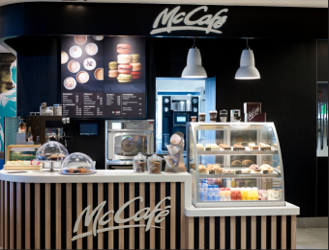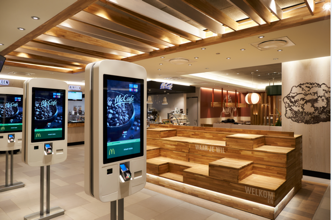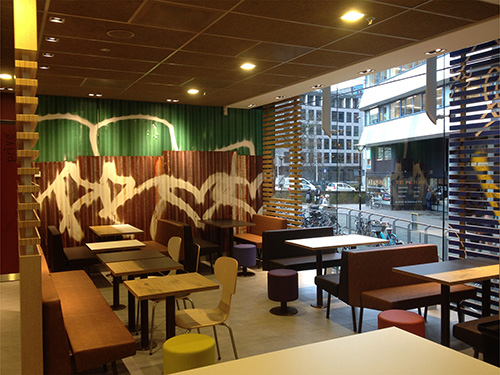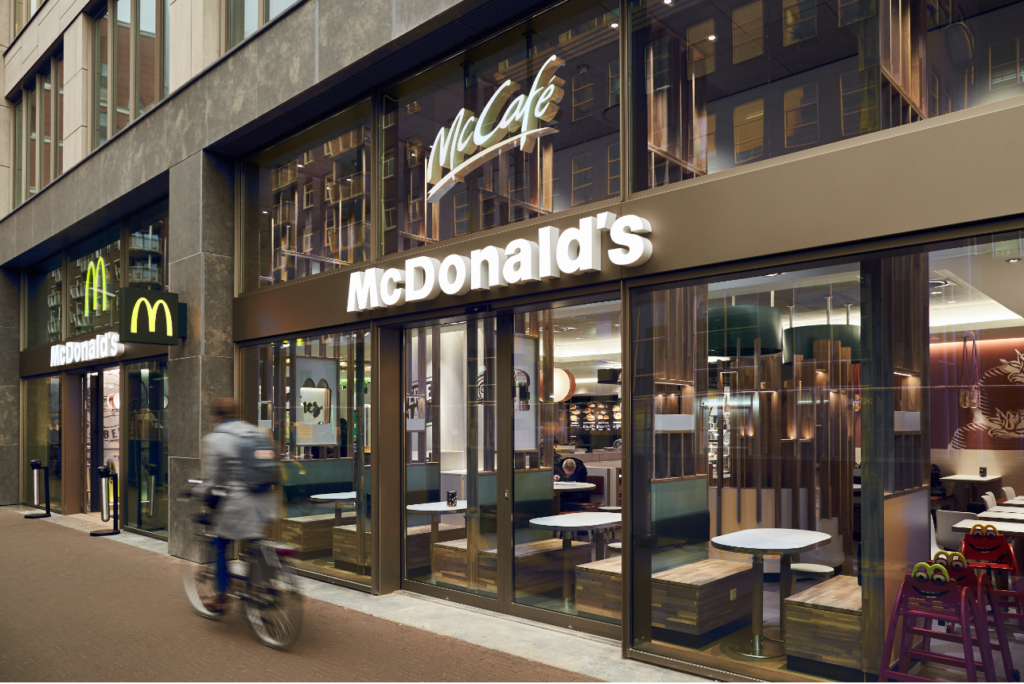My name is Marc de Kemp and I am 49 years old. I live in Zeist with my family and really enjoy it. I have a 19-year-old daughter and three sons aged 17, 12, and 10. On weekends, we often go for walks with our dog in the nearby woods. You can also often find me at the hockey fields on the weekends—especially this year, as I am the coach of my 12-year-old son’s team. I also try to play tennis twice a week.
During my Psychology study at Utrecht University, I also started studying Law in my second year. My first job was at Houthoff, an independent law firm, where I worked for almost 13 years with great pleasure. At Houthoff, I was part of the IP/IT department, mainly focusing on media and advertising law.
I have now been working at McDonald’s Netherlands for 10 years. As General Counsel, I am responsible for the franchise policy, working closely with our Managing Director and the Director of Development & Franchising. In addition, I lead a team, and together we provide both solicited and unsolicited advice to the organization. For example, on current topics such as ESG. This makes the role very dynamic and challenging, and that’s why I still truly enjoy going to work every day.
McDonald’s, engaged with society

There are 264 McDonald’s restaurants in the Netherlands. In a way, we’re a mini society in ourselves — both our guests and our crew members reflect the diversity of the wider community. What many people may not realize is that most of our restaurants are operated by local entrepreneurs.
Our Dutch headquarters is located in Utrecht and led by a Dutch management team. More than 22,000 people work at McDonald’s Netherlands, carefully preparing our products fresh every day.
Of course, we are a large organization, but we are — and feel — closely connected to society. Our mission is to bring people together and make a positive impact. For example, we actively engage with local municipalities and neighborhood residents to maintain open dialogue.
We are also committed to reducing our environmental footprint, for instance by cutting down on waste and encouraging the reuse and recycling of packaging materials.
That’s why we integrate sustainable and socially responsible initiatives into our business operations — including within our Legal department. This way, we ensure that both now and in the future, we remain that familiar place where people in the Netherlands can enjoy a moment of happiness with delicious, freshly prepared food and friendly service.
Het Legal Team
Over the past few years, we have continued to professionalize our department. Today, we are a team of three specialists, each with our own focus areas. At the same time, we believe it’s important to remain flexible. That’s why all of us have knowledge of the key legal domains: franchising, real estate, employment law, and privacy.
But like everywhere else, we’re seeing the landscape shift — and we’re expanding our expertise in areas such as ESG and the CSRD legislation.



Being a considerate member of the community
We see various opportunities across the Netherlands to open new restaurants. However, in recent years, we’ve noticed increasing resistance from some municipalities and local residents when they hear about a potential new location in their area.
Local politicians and neighbors are important stakeholders to us. We aim to contribute to a strong (local) society — and that’s only possible if we engage in open dialogue. Unfortunately, not everyone is always open to that conversation. That’s a missed opportunity, as we often manage to find good solutions that can address concerns as much as possible.
Being a good neighbor is one of our core principles.
We are not (yet) able to further electrify
Another major challenge in realizing more sustainable restaurants is network congestion. At several locations in the Netherlands, we already have all the necessary permits in place to build a new restaurant — but there is insufficient, or even no, electricity available. Since 2018, we have taken the step towards fully electric operation. That objective remains. We hope that the government and grid operators will take steps that will enable us to electrify further. In the meantime, we are looking for other ways to become more sustainable. For example, we are installing solar panels on restaurants and testing ‘battery packs’ to store energy.


Risk management plays a major role
Risk management always plays a major role at McDonald’s. Not only in the Netherlands, but actually all over the world. McDonald’s is such a well-known brand that almost everything we do is under a magnifying glass by the general public and our stakeholders. It is nice to discuss this with our colleagues in other countries. We notice that the challenges we face in the Netherlands also play or have played in other countries. It is very nice to use the ‘learnings’ of other colleagues and not have to reinvent the wheel every time.
A lot of freedom in the legal field
We are given a lot of freedom in the legal field by McDonald’s Corporation to make our own (legal) considerations. Furthermore, I think Risk Management is a responsibility of everyone within our company. For example, if you look at the implementation of the CSRD legislation within McDonald’s, then that is really a cross-functional project between Supply Chain, Legal, Finance and Brand Impact. Each department must determine its own strategy on how risks can be limited.
McDonalds and AI
Recently, we at McDonald’s in the Netherlands have been busy setting up processes on how we as a company deal with AI. McDonald’s Corporation determines the global principles of the policy that we then edit so that it can also be applied locally in the Netherlands. The use of AI is also typically a subject where everyone has their own responsibility to limit the risks. For example, if the marketing department wants to use an AI application in our McDonald’s app, this intention must first be reported to Legal and IT. We then assess how risky the AI application is based on so-called ‘checklists’ that have been completed in advance by the marketing department and the external supplier. If the risk is limited or moderate, risk-mitigating measures are devised. Permission is only granted if these can be met. If it is not possible or not sufficiently possible to limit risks, the use of the AI application is not permitted.
